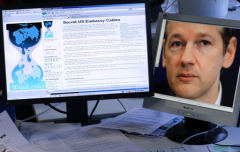The impotence of FOI
Tony Blair has been criticised by MPs for refusing to co-operate with their parliamentary inquiry into the ineffectiveness of the Freedom of Information Act.
In his autobiography, Blair described the legislation (which he introduced) as "antithetical to sensible government" and admitted that he was "not at all sure that the act has really achieved its goal of greater transparency".
A prime example of the ineffectiveness of Freedom of Information law in the UK and its inability to establish anything like a transparent and accountable society was the Information Commissioner's decision not to act in the News of the World phone hacking scandal. The Commissioner showed a complete lack of integrity when he refused to investigate the matter fully - even when he had the opportunity (and the evidence) to reveal the true extent of the News of the World's corrupt journalistic practices.



